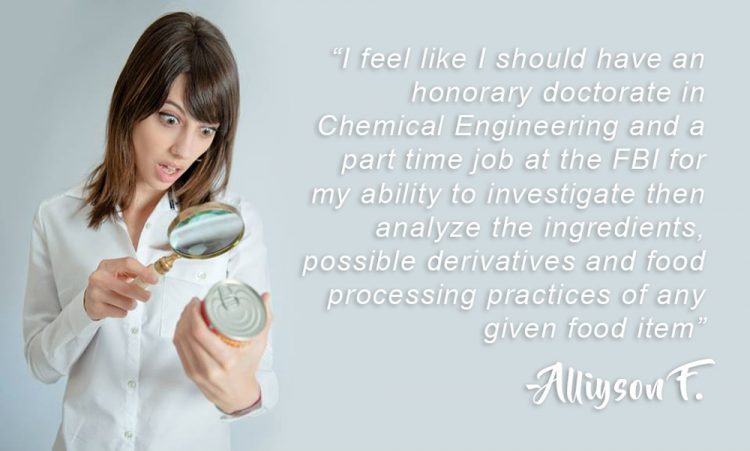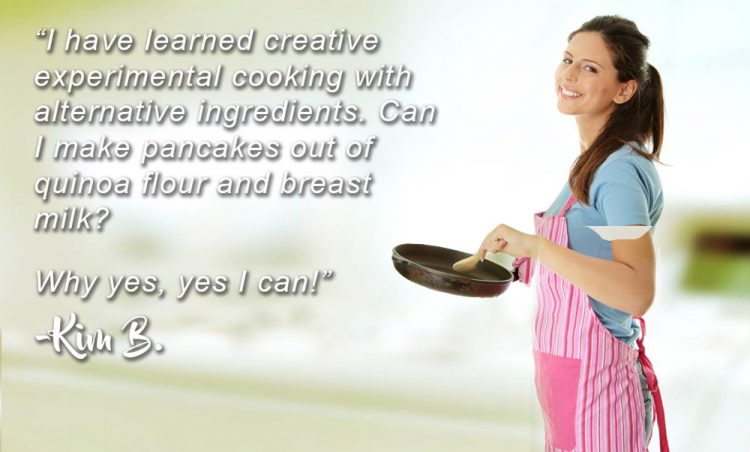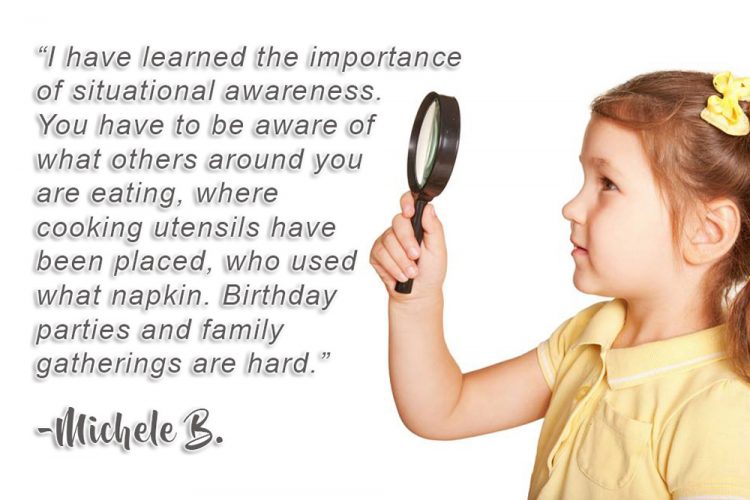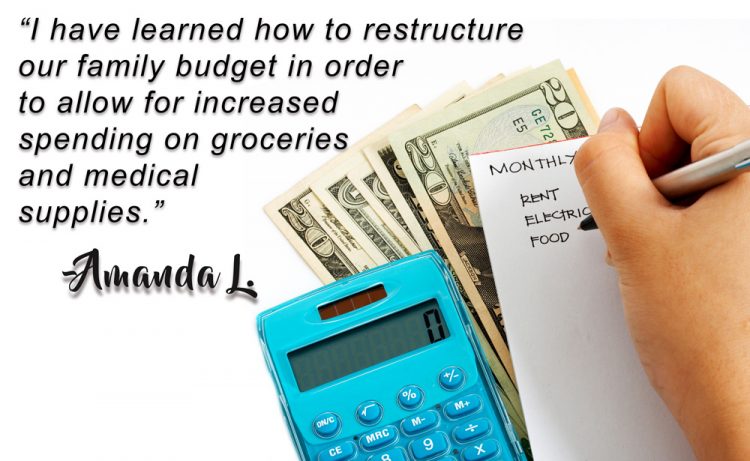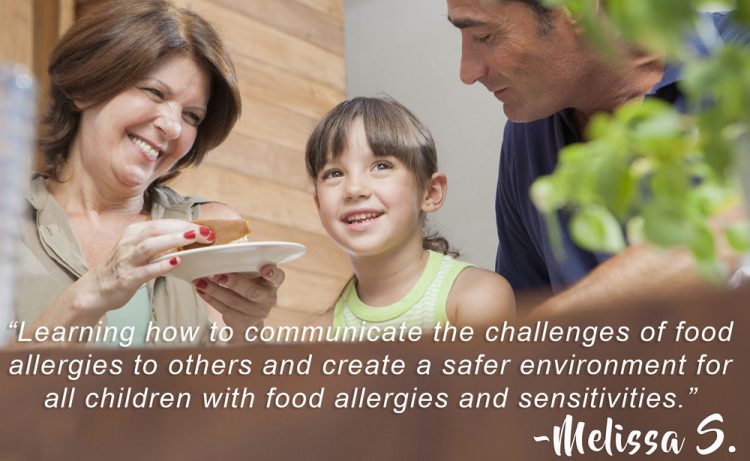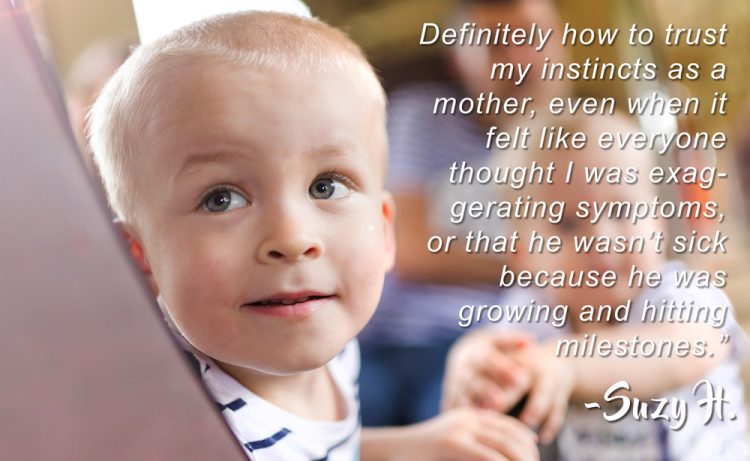11 Skills We Have Learned While Caring for Our Children With FPIES
This post was inspired by a Food Protein-Induced Enterocolitis Syndrome (FPIES) article appearing on The Mighty, “What I’ve learned as a mother of a child with FPIES.” At the end of the article, the author mentions her ability to know the cross-contamination of common grocery store items. When we shared this article with our community, it inspired parents to share some of their own skills learned.
We know there are numerous additional skills we parents of children living with FPIES have learned and mastered that other parents of children living without the experiences we share may not even have to consider.
For this installment of our “Mighty Moment,” we posed the question, “What are some skills you have learned while caring for your child with FPIES that could be otherwise seen as irrelevant to other parents?” What have we learned? What skills have we mastered?
These were the responses:
1. We learn to read labels like a detective investigating a case.
“I feel like I should have an honorary doctorate in “Chemical Engineering” and a part-time job at the FBI for my ability to investigate then analyze the ingredients, possible derivatives and food processing practices of any given food item” — Alliyson F.
“I have learned how to recognize the (many) names of corn on a label!” — Joy M.
“I’ve learned to spot hidden ingredients like corn, soy and dairy from a mile away. I’ve also learned that the corn industry has its hand in basically all food and medical manufacturing, even water.” — Amanda E.
“Label reading! It’s a must for any grocery trip.” — Deana H.
“I’m a master label reader and always have safe food on hand.” — Alicia F.
2. We learn to cook with limited and atypical ingredients.
“I have learned creative experimental cooking with alternative ingredients. Can I make pancakes out of quinoa flour and breast milk? Why yes, yes I can!” –Kim B.
“I learned how to cook ‘typical’ looking foods — muffins, cookies, etc. — with very atypical ingredients. I have learned the ‘chemistry’ behind baking — why certain types of ingredients produce certain types of results.” — Amanda L.
“Learning the chemistry of baking and being able to provide a comparable option like what other children eat was always a top priority.” — Melissa S.
“Who needs wheat flour, eggs, baking powder, sugar, vanilla and oil to bake a birthday cake, anyway?” — Jamie D
“Making a cake/cupcakes out of jello, fruit, or gift boxes! Actually this one is kind of cool.” — Natalie M.
“Learning how to cook all food from scratch!” — Deneige P-H.
“I learned how to cook proper vegan food! Bake vegan treats and generally learned how to cook full stop!” — Danielle W.
3. We learn to navigate for the unique needs of our children.
“I have learned when my children’s safe produce is in season in different parts of the world so that I know when to ask the co-op to special order it.” — Amada L.
“I have learned how to navigate the medical community. If a doctor isn’t helping you find answers, find one that will! We have definitely learned to stick up for ourselves and what we know is happening to our child!” — Olivia J.
“My husband’s career moves us often. I’ve learned to navigate new grocery stores and restaurants with ease and where to order our favorites when they can’t be found locally.” — Alicia F.
4. We learn how to handle digestive upset with finesse.
“I learned how to spy the vomit was coming before it even came up, and catch it with anything… including my bare hands.” — Katie Lou B.
“Poop. I think I know everything there is to know about poop; from the smell to the texture and the frequency. I don’t think most parents study poop like we do.” — Heidi W
5. We learn to be well prepared, always prepared.
“I have learned to always have a backup plan, daily. Life changes quickly and reactions come out of nowhere. Always be prepared with safe snacks too, and then your kiddo isn’t as likely to be left out.” — Stephanie M.
“Carrying safe snacks everywhere. Pretty much knowing any party or gathering there won’t be much he can have there.” — Nicole B.
“Always having safe edible or non edible ‘treats’ to trade at Halloween, school parties, birthday parties, parades or any general outing where people offer your child food without you being able to read the label.” — Natalie M.
6. We learn situational awareness.
“I’ve learned to have eagle eyes when food is around. FPIES has taught me to be vigilant without my little guy feeling like he’s different.” — Alicia F.
“I have learned the importance of situational awareness. You have to be aware of what others around you are eating, where cooking utensils have been placed, who used what napkin. Birthday parties and family gatherings are hard.” — Michele B.
7. We learn new ways to cope.
“I have learned how to restructure our family budget in order to allow for increased spending on groceries and medical supplies.” — Amanda L.
“Learning how to make hospital stays more comfortable. An air mattress for two is a must just to get some sleep.” — Andrew F.
“I’ve learned also, how to cope with the devastating blow of passing the [oral food challenge] and then completely failing reintroduction.” — Alicia F.
8. We learn to advocate for our children.
“Learning how to communicate the challenges of food allergies to others and create a safer environment for all children with food allergies and sensitivities.” — Melissa S.
“That it’s OK to disagree with your doctor and keep pushing for what your child needs, even if you don’t know what that is yet. We really need to advocate for our child, to doctors, schools, friends and even family.” — Tanya D
“How to advocate for my child when in the ER. Being told that it’s ‘just an episode of vomiting’ while my child is hypothermic, dehydrated and lethargic is unacceptable. Rare shouldn’t mean unheard of in the medical world. Don’t take no for an answer.” — Nicole O.
“This is a skill needed for all parents, but I feel that I needed to learn it quicker and better: not caring about the ‘permission’ of others to take care of the health of my child. I can’t even count the number of times people (even strangers) have rolled their eyes at actions required to keep my child safe… without even inquiring why. My daughter has FPIES to dairy and soy. Asking someone to not put their finger in her mouth while they’re eating pizza should not cause a backlash. Asking people to wash their ice cream covered hands before holding my baby at 6 months old (who puts everything in their mouths) should not be answered with a, ‘No… that’s a bit over the top.’ All experiences I’ve had multiple times.” — Aimee J.
“Becoming more aware of what is in my child’s food, including mine and advocating for my child and her needs.” — Monica M
“How to make sure everyone around my kid knows not to feed him anything without my approval! I may seem like an [overprotective] lady at times, but safety first!” — Diane O’Connor K.
9. We learn to educate others not only on food allergies overall, but on a different type food allergy.
“Educating others about what FPIES is and how important it is to be cognizant of what she eats so we can avoid a reaction.” — Monica M.
10. We learn to be confident and to trust our instincts as mothers early on.
“I learned how to advocate for my child’s body when many alternative (and often minimizing) opinions on what is going on are thrown at me. FPIES is rare, and in our case mostly chronic. Many people felt I just needed to be firmer with my child when she ‘wouldn’t’ sleep at night. I learned to trust my instincts as a mother.” — Sherry W.
“Definitely how to trust my instincts as a mother, even when it felt like everyone thought I was exaggerating symptoms, or that he wasn’t sick because he was growing and hitting milestones.” — Suzy H.
“I’ve learned that I do not need to explain my reasons or gain the approval of others for my parenting choices. Others won’t understand because they don’t know what’s going on. I can’t spend all of my energy justifying these decisions to everyone that interacts with my daughter. I can explain our daughter’s health to those close to us, but I can’t explain it to everyone. People don’t need to agree with me in order for me to protect the health of my child. People don’t know what FPIES is, so they don’t understand in the same way they would for a peanut allergy or something like that. It’s just as dangerous and my little one is just as sensitive.” — Aimee J.
11. We learn how to be completely selfless.
“How to be completely selfless. I never thought I’d still be breastfeeding, 15 months into a super restricted diet.” — Suzy H.
We are a group of parents raising children with a rare type of food allergy. We often find ourselves learning skills earlier than we anticipated we would need them, or never would have otherwise considered. Any parent would do the same.
We want to hear your story. Become a Mighty contributor here.
Banner image via Getty: Archv


